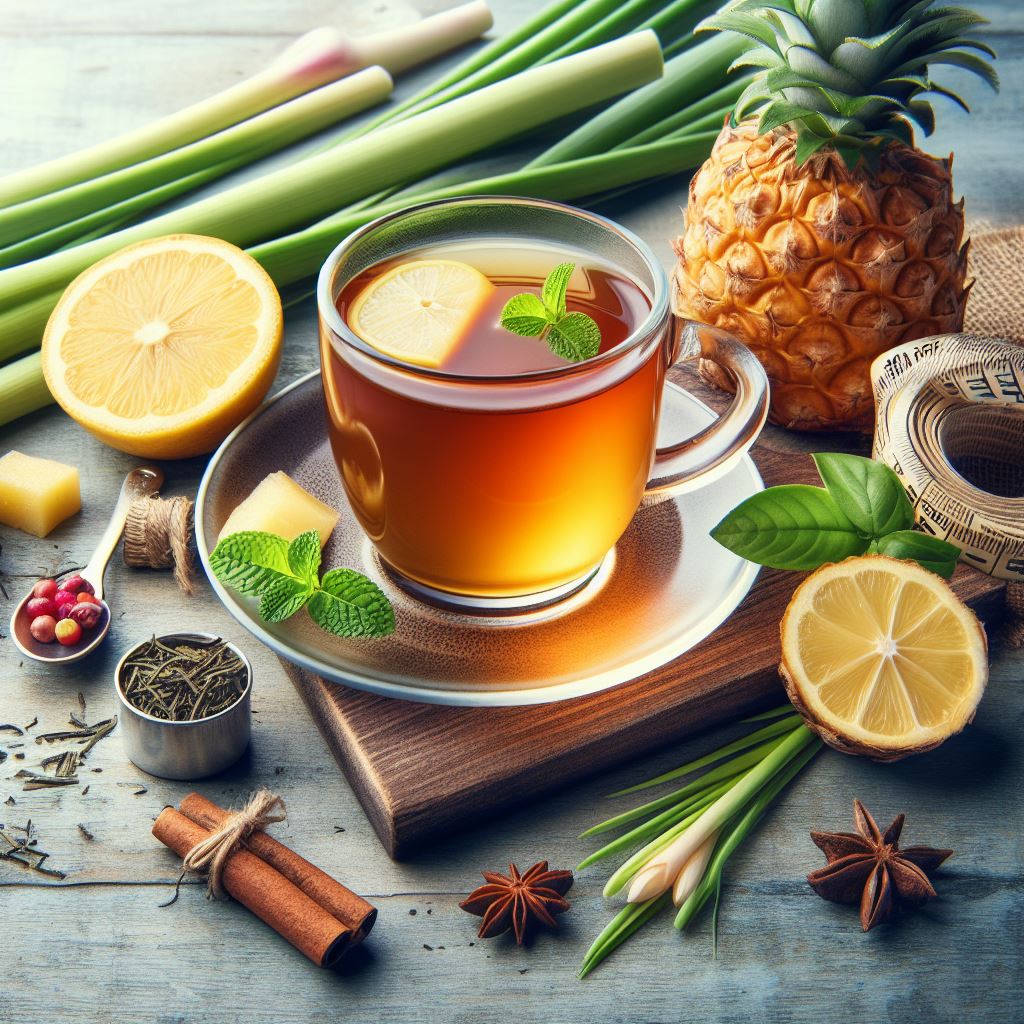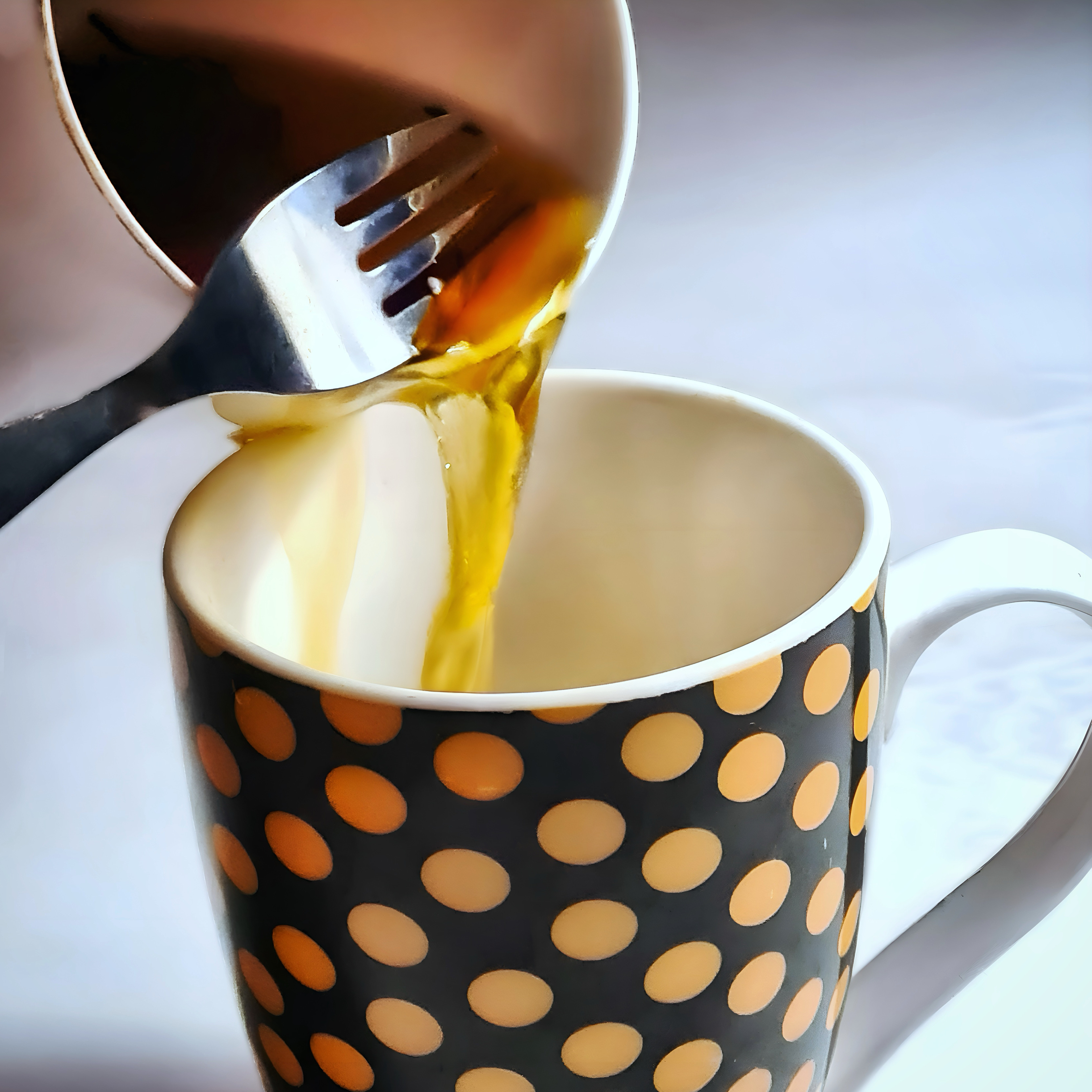Do you love tea? Do you want to have glowing skin? If you answered yes to both questions, then you are in for a treat. In this article, we will explore the best tea for skin health and how they can help you achieve a radiant complexion.

Tea is not only a delicious drink, but also a powerful ally for your skin. Tea contains various compounds that can protect, nourish, and rejuvenate your skin, such as antioxidants, anti-inflammatory agents, vitamins, minerals, and more.
In this article, we will cover the following topics:
- The connection between tea and skin health
- The types of tea and their skin benefits
- How to incorporate tea into your skin care routine
- Precautions and considerations
Ready to discover the best teas for skin? Let’s get started!
The Connection Between Tea and Skin Health
Skin is the largest organ of the human body, and it plays a vital role in protecting us from external threats, regulating our temperature, and sensing our surroundings. Skin is also a reflection of our inner health and well-being. Healthy skin is smooth, firm, elastic, and radiant, while unhealthy skin is dull, dry, saggy, and prone to problems.

There are many factors that can affect our skin health, such as genetics, age, hormones, diet, lifestyle, environment, and stress. Some of these factors are beyond our control, but others can be improved by making positive changes. One of these changes is drinking tea. Tea can benefit our skin in several ways, such as:
Antioxidants:
Tea is rich in antioxidants, which are substances that can prevent or delay the damage caused by free radicals. Free radicals are unstable molecules that can harm our cells and DNA, leading to aging, inflammation, and diseases. Antioxidants can neutralize free radicals and protect our skin from oxidative stress, which can cause wrinkles, sagging, and pigmentation.
Anti-inflammatory:
Tea also has anti-inflammatory properties, which can reduce the redness, swelling, and irritation of the skin. Inflammation is a natural response of the body to injury or infection, but chronic inflammation can be harmful and lead to skin conditions like acne, eczema, and psoriasis. Tea can soothe and calm the skin, as well as modulate the immune system and prevent excessive inflammation.
Other benefits:
Tea also contains other beneficial compounds for the skin, such as vitamins, minerals, amino acids, polyphenols, and caffeine. These compounds can hydrate, nourish, detoxify, and stimulate the skin, as well as regulate the blood flow, collagen production, and cell turnover.
There is scientific evidence that supports the benefits of tea for skin health. For example:
- A study published in the Journal of Nutrition in 2011 found that drinking green tea for 12 weeks improved the skin elasticity, roughness, density, and hydration of elderly women.
- Another study published in the British Journal of Nutrition in 2012 found that drinking white tea for 12 weeks reduced the risk of skin cancer and improved the skin quality of healthy men.
- A review published in the Journal of Photochemistry and Photobiology in 2013 concluded that tea polyphenols have potential in preventing and treating various skin disorders, such as sunburn, photoaging, skin cancer, and inflammatory skin diseases.
Types of Tea and Their Skin Benefits
There are many types of tea, but they all come from the same plant: Camellia sinensis. The difference lies in the way the leaves are processed, which affects their color, flavor, and chemical composition. See below for the main types of tea:

1. Green Tea:
Green tea is made from fresh leaves that are steamed or pan-fried to prevent oxidation. It is the most popular type of tea for skin health, as it contains high levels of antioxidants, especially catechins. Catechins are a type of polyphenol that can scavenge free radicals, inhibit enzymes that degrade collagen and elastin, and modulate the expression of genes related to skin aging. Green tea can also reduce the inflammation and sebum production that cause acne, as well as protect the skin from UV damage. Green tea is the best tea for skin anti-aging and acne prevention.
2. White Tea:
White tea is made from young buds and leaves that are minimally processed, usually by withering and drying. It has a pale yellow color and a delicate, floral flavor. As a matter of fact, White tea has the highest antioxidant content of all teas, as it contains more polyphenols than green tea. It can also inhibit the activity of matrix metalloproteinases (MMPs), which are enzymes that break down the collagen and elastin in the skin. White tea can also stimulate the production of new skin cells and improve the skin barrier function. White tea is the best tea for skin rejuvenation and repair.
3. Chamomile tea:
Chamomile tea is an herbal tea made from the flowers of the chamomile plant. It has a golden color and a sweet, apple-like flavor. Firstly, chamomile tea has soothing and anti-inflammatory properties, as it contains flavonoids, terpenoids, and coumarins. Chamomile tea can also reduce the irritation and inflammation of the skin, as well as heal wounds, burns, and ulcers. Not only this, it can improve the skin hydration and elasticity. Chamomile tea is the best tea for skin soothing and healing.
4. Rooibos tea:
Rooibos tea is an herbal tea made from the leaves of the rooibos plant, which is native to South Africa. It has a reddish-brown color and a nutty, earthy flavor. As for the benefits, rooibos tea has hydrating and anti-inflammatory properties, as it contains antioxidants, minerals, and alpha-hydroxy acids. It can moisturize and soften the skin, as well as reduce the redness, itching, and scaling of the skin. Lastly, rooibos tea can also prevent the oxidative damage and DNA mutations that lead to skin cancer. So with this, rooibos is the best tea for skin hydration and protection.
5. Herbal teas:
Herbal teas are infusions made from various parts of plants, such as flowers, leaves, roots, seeds, and fruits. These types of tea can have specific benefits for the skin, depending on the type of herb. For example, peppermint tea can reduce the oiliness and inflammation of the skin, as well as refresh and invigorate the senses. Lavender tea can relax and calm the skin, as well as improve the skin tone and texture. Other herbal teas that can benefit the skin include rose, hibiscus, ginger, turmeric, and lemon.
6. Special mention – Matcha:
Matcha is a type of green tea that is made from finely ground leaves that are whisked with hot water. It has a bright green color and a rich, creamy flavor. Matcha has all the benefits of green tea, but in a more concentrated form, as it contains more catechins, caffeine, and chlorophyll. It can boost the skin’s antioxidant defense, stimulate the blood circulation, and detoxify the skin. Additionally, it can improve the skin’s elasticity, smoothness, and moisture. So ultimately, matcha can be the best option for skin supercharging and indulgence.
How to Incorporate Tea into Your Skin Care Routine
Drinking tea is one of the easiest and most enjoyable ways to improve your skin health. However, there are some tips and tricks that can help you get the most out of your tea drinking experience – See below:

• Choose the right tea:
Depending on your skin type and goals, you may want to choose a tea that suits your needs. For example, if you have dry skin, you may want to drink rooibos tea or chamomile tea, as they can hydrate and soothe your skin. If you have oily skin, you may want to drink green tea or peppermint tea, as they can reduce the sebum and inflammation of your skin. If you have mature skin, you may want to drink white tea or matcha, as they can rejuvenate and repair your skin.
• Brew it properly:
To extract the optimal amount of flavor and benefits from your tea, you need to brew it properly. Different types of tea require different water temperatures and steeping times. Generally, the lighter the tea, the lower the temperature and the shorter the time. For example, green tea and white tea should be brewed at around 80°C for 2 to 3 minutes, while black tea and herbal tea should be brewed at around 100°C for 4 to 5 minutes. You can use a thermometer and a timer to ensure accuracy, or follow the instructions on the tea package.
• Drink it regularly:
To see the effects of tea on your skin, you need to drink it regularly and consistently. The recommended amount of tea intake varies depending on the type and quality of tea, but generally, 3 to 4 cups of tea per day are considered safe and beneficial. You can drink tea throughout the day, but avoid drinking it too close to bedtime, as some teas contain caffeine that can interfere with your sleep quality. You can also vary the types of tea you drink to get a range of benefits and flavors.
Applying Tea Directly to Your Skin
Drinking tea is not the only way to use tea for your skin. You can also use tea topically, which means applying it directly to your skin. Tea can be used in various ways in your skincare routine. Read below:

• Face masks:
You can make your own face masks with tea and other natural ingredients, such as honey, yogurt, oatmeal, or clay. Just choose the ingredients that suit your skin type and needs, and mix them with brewed tea or tea leaves. You can apply the mask to your clean face, leave it on for 10 to 15 minutes, and rinse it off with warm water. It is possible to use face masks once or twice a week to nourish, cleanse, and brighten your skin.
• Toners:
You can also use tea as a toner, which is a liquid product that balances the pH and moisture of your skin. Just brew your tea of choice, let it cool down, and transfer it to a spray bottle or a cotton pad. You can apply the toner to your face after cleansing and before moisturizing, or throughout the day to refresh and hydrate your skin.
• Compresses:
Another way to use tea topically is to make compresses, which are cloth or pads soaked in tea and applied to specific areas of the skin. You can use compresses to treat various skin issues, such as puffiness, dark circles, inflammation, or infections. Just brew your tea of choice, soak a clean cloth or pad in it, wring out the excess liquid, and place it on the affected area for 10 to 20 minutes. You can repeat this as needed to soothe and heal your skin.
Precautions and Considerations
Tea is generally safe and beneficial for most people, but there are some precautions and considerations that you should be aware of before using tea for your skin:

• Allergies and sensitivities:
Some people may be allergic or sensitive to tea or some of its components, such as caffeine, tannins, or herbs. If you have a history of allergies or sensitivities, you should consult your doctor before using tea for your skin. You should also do a patch test before applying tea topically, by applying a small amount of tea to a discreet area of your skin and waiting for 24 hours to see if any reaction occurs. If you experience any symptoms, such as rash, itching, swelling, or difficulty breathing, you should stop using tea and seek medical attention.
• Quality of tea:
The quality of tea can affect its benefits and safety for your skin. You should choose high-quality, organic teas that are free of pesticides, additives, or artificial flavors. Make sure to store your tea properly, in a cool, dry, and dark place, and use it within the expiration date. You should also brew your tea with filtered or bottled water, and avoid using tap water that may contain contaminants or chemicals.
• Limitations:
Tea is not a cure-all and should not replace your medical treatment or skincare products. Tea can complement and enhance your skin health, but it cannot solve all your skin issues or prevent all skin diseases. You should use tea as part of a comprehensive skincare and health strategy that includes proper hygiene, sun protection, and regular check-ups with your dermatologist.
Other Lifestyle Tips
Tea can be a wonderful addition to your skin care routine, but it is not enough by itself. To achieve the best results, you need to adopt a holistic approach that considers your overall health and well-being. See below for some of the lifestyle tips that can help you improve your skin health:

• Eat a balanced diet:
Your diet plays a crucial role in your skin health, as it provides the nutrients and energy that your skin needs to function properly. You should eat a balanced diet that includes a variety of foods, such as fruits, vegetables, whole grains, lean proteins, healthy fats, and water. You should also avoid or limit foods that can harm your skin, such as processed, fried, sugary, or spicy foods, as well as alcohol and caffeine.
• Exercise regularly:
Exercise is another important factor for your skin health, as it improves your blood circulation, oxygen delivery, and toxin elimination. Exercise can also boost your mood, reduce your stress, and enhance your self-esteem. You should exercise regularly, at least 3 times a week, for 30 minutes or more, and choose an activity that you enjoy and that suits your fitness level. You should also take care of your skin before and after exercise, by cleansing, moisturizing, and protecting it from sun damage.
• Manage your stress:
Stress is one of the biggest enemies of your skin health, as it can trigger or worsen various skin problems, such as acne, eczema, psoriasis, or rosacea. Stress can also affect your hormones, immune system, and sleep quality, which can further impact your skin. You should manage your stress by identifying and avoiding or coping with the sources of stress in your life. You should also practice relaxation techniques, such as breathing, meditation, yoga, or massage, and seek professional help if needed.
Conclusion
Tea is a wonderful beverage that can offer many benefits for your skin health. Tea can protect, nourish, and rejuvenate your skin, as well as soothe and heal various skin conditions. You can use tea internally and externally, as well as integrate it into your lifestyle for better skin and well-being.
If you are looking for the best teas for skin, you can try the following:
- Green tea for anti-aging and acne prevention
- White tea for skin rejuvenation and repair
- Chamomile tea for skin soothing and healing
- Rooibos tea for skin hydration and protection
- Herbal teas for skin customization and variety
- Matcha for skin supercharging and indulgence
We hope you enjoyed this article and learned something new and useful. If you did, please share it with your friends and family, and let us know what you think in the comments below. Have you tried any of these teas for your skin? What are your favorite teas for skin? We would love to hear from you!
Discover More Tea-Related Articles:
- The Traditional Yemeni Tea – How to Make ‘Adeni Chai’
- How to Make Pumpkin Seed Tea: A Nutritious and Cozy Drink
- Ginger Turmeric Tea & How to Make it at Home
- How to Tea Dye Paper for a Vintage Look
- How to Enjoy Tea with Jam: A Russian Tradition





Leave a Comment